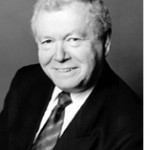By Rabbi Dow Marmur
 JERUSALEM– What Shimon Peres said to Angela Merkel on Tuesday, I heard from Jim Lederman the night before.
JERUSALEM– What Shimon Peres said to Angela Merkel on Tuesday, I heard from Jim Lederman the night before.
The German Chancellor was paying a visit to Israel’s President as part of her brief stay in the country. She brought many members of her cabinet to Jerusalem for another joint session with her Israeli counterpart Binyamin Netanyahu and his cabinet. If we ever needed evidence that peace is possible, the fact that Israel and Germany have grown that close despite the Holocaust constitutes compelling evidence. Naysayers about the prospect of an Israeli-Palestinian peace, please take note.
At their meeting Peres is quoted to have said: “Democracy cannot start and end in elections only. True democracy begins on the day after the elections in granting human rights and concern for citizens’ welfare.”
The previous evening, Toronto-born Jim Lederman, long-time foreign correspondent in Jerusalem and the most astute analyst I know, was giving his monthly lecture at one of the Conservative synagogues in the city. In the course of it he said that elections don’t start democracy but should be its climax, because democracy begins with building civil society, an independent judiciary and a host of similar institutions.
Both Peres and Lederman had, of course, the current events in Egypt in mind. Israelis always remember that Hamas was democratically elected in Gaza. The Germans may have also recalled that Hitler first came to power in democratic elections. The fear they all seem to share is that the current efforts to overthrow President Mubarak in the name of democracy may end up with an even worse regime than his. That’s why so much more is needed to save Egypt than just to get rid of Mubarak.
Few politicians fear more the experience of Gaza than the prime minister of the Palestinian Authority Salam Fayyad. He knows the imperative of keeping his president Mahmoud Abbas in office for the time being lest premature, ostensibly democratic, elections may enable Hamas to do to the West Bank what it did to Gaza.
That’s why he’s concentrating on the economy, on promoting law and order and creating conditions for a state before the state is actually declared. He seems to have learnt much from the Jews during the British Mandate in Palestine when they, through the Jewish Agency and similar organs, created all that was necessary for a state before Israel came into being. That’s why Israel began with a solid democratic structure. Despite underhand attempts to torpedo it by some fanatics, usually in the name of “authentic” Torah Judaism, Israeli democracy has remained healthy, robust and viable.
Fayyad may also know better than most that the current spate of “recognitions” of the Palestinian state by Latin American countries is at best meaningless and at worst harmful in that it precipitates the formation of a state that could fall into the hands of Hamas. Instead, he can point to the serious economic and other internal advancements in the West Bank that have come about because of his policies. They all bode well for the creation of a Palestinian state in – we hope – the not-too-distant future, unless, of course – God beware – fanatics on both sides succeed to sabotage it.
Though it’s very difficult to fathom what’s happening at present in Egypt, I found the remarks I read by Peres and heard from Lederman extremely helpful.
*
Rabbi Marmur is spiritual leader emeritus of Holy Blossom Temple in Toronto. He now divides his year between Canada and Israel